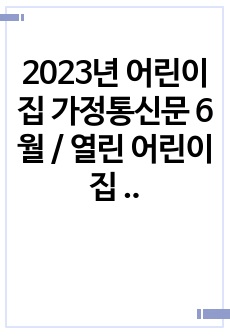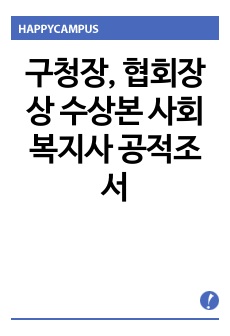한국어 존칭: Korean honorific research paper
- 최초 등록일
- 2016.02.10
- 최종 저작일
- 2015.11
- 10페이지/
 MS 워드
MS 워드
- 가격 3,000원

소개글
한국어 존칭에 관하여 쓴 apa 형식 논문 입니다.
주제는 Korean Honorifics and its influence on Using Second Language in Daily Communication입니다.
목차
1.Introduction
2.Background
2.1 Korean Culture
3.Literature Review
3.1 Honorific Definition
3.2 English Honorific System
3.3 Korean Honorific System
4.Method
4.1 Participants
4.2 Data Collection
4.3 Data Analysis
5.Results
6.Discussion
7.Conclusion
본문내용
1.Introduction
Although the number of Western students living Korea have greatly increased, Korean as second language learners are still facing difficulties while interacting with Korean native speakers. Understanding and adjusting to culture is vital for second language learners to achieve successful interaction with the natives.
As both language and culture are inseparable,
it is necessary for L2 to take one’s culture into consideration in order to get better in the skill of foreign language communication (Sapir 1921).
Westerners who learn Korean as their second language must be fully aware of the significance of the relationship between culture and language.
Korean culture is both decorous and hierarchical.
Therefore, it caused severely strict honorific language system, which is the biggest factor for Western students that influences on second language.
The purpose of this paper is to examine whether the honorifics system in Korean language has an impact on interaction between Korean native speakers and KSL students.
참고 자료
Brown, L. (2011). Korean honorifics and politeness in second language learning(Vol. 206). John Benjamins Publishing.
Brown, L. (2013). Identity and honorifics use in Korean study abroad. Social and cultural aspects of language learning in study abroad, 37, 269.
Lee, I., & Ramsey, S. R. (2000). The Korean Language, 224-267. State University of New York Press
Lee, J. S. 2006. Linguistic constructions of modernity: English mixing in Korean television commercials. Language in Society 35: 59‐91
Nordquist, R. (2014). Grammar & Composition. What is Language.
Sapir, Edward. (1921). Language: An Introduction to the Study of Speech. New York:
The Quinn and Boden Company.
Sohn, H. M. (2001). The Korean Language. Cambridge University Press.
Wang, H.-S.. (1995). The Impact of Family Background on the Acquisition of Korean Honorifics. The Korean Language in America, 1, 197–211
Wong, K. Y. (2011). The system of honorifics in the Korean language.




